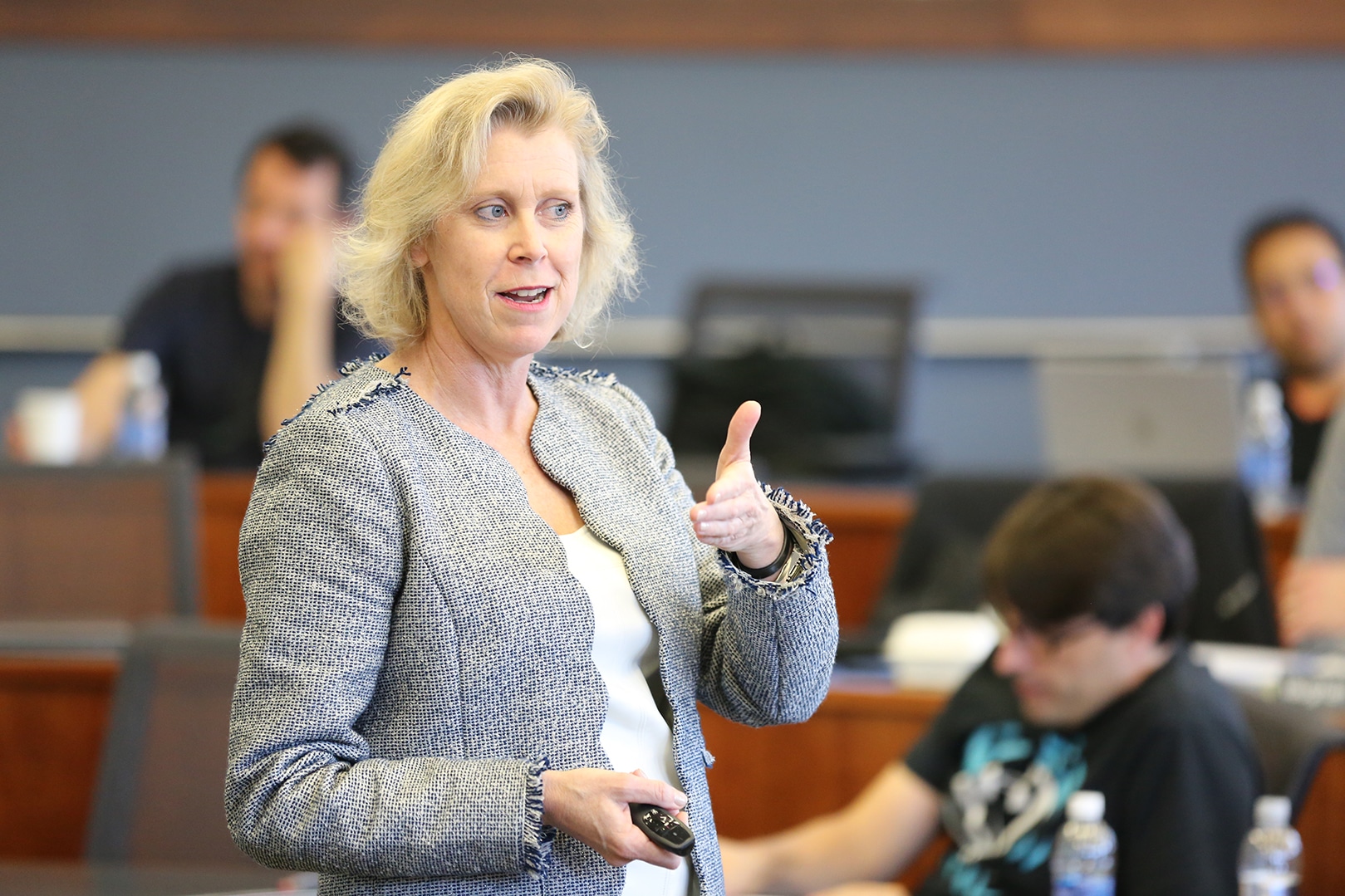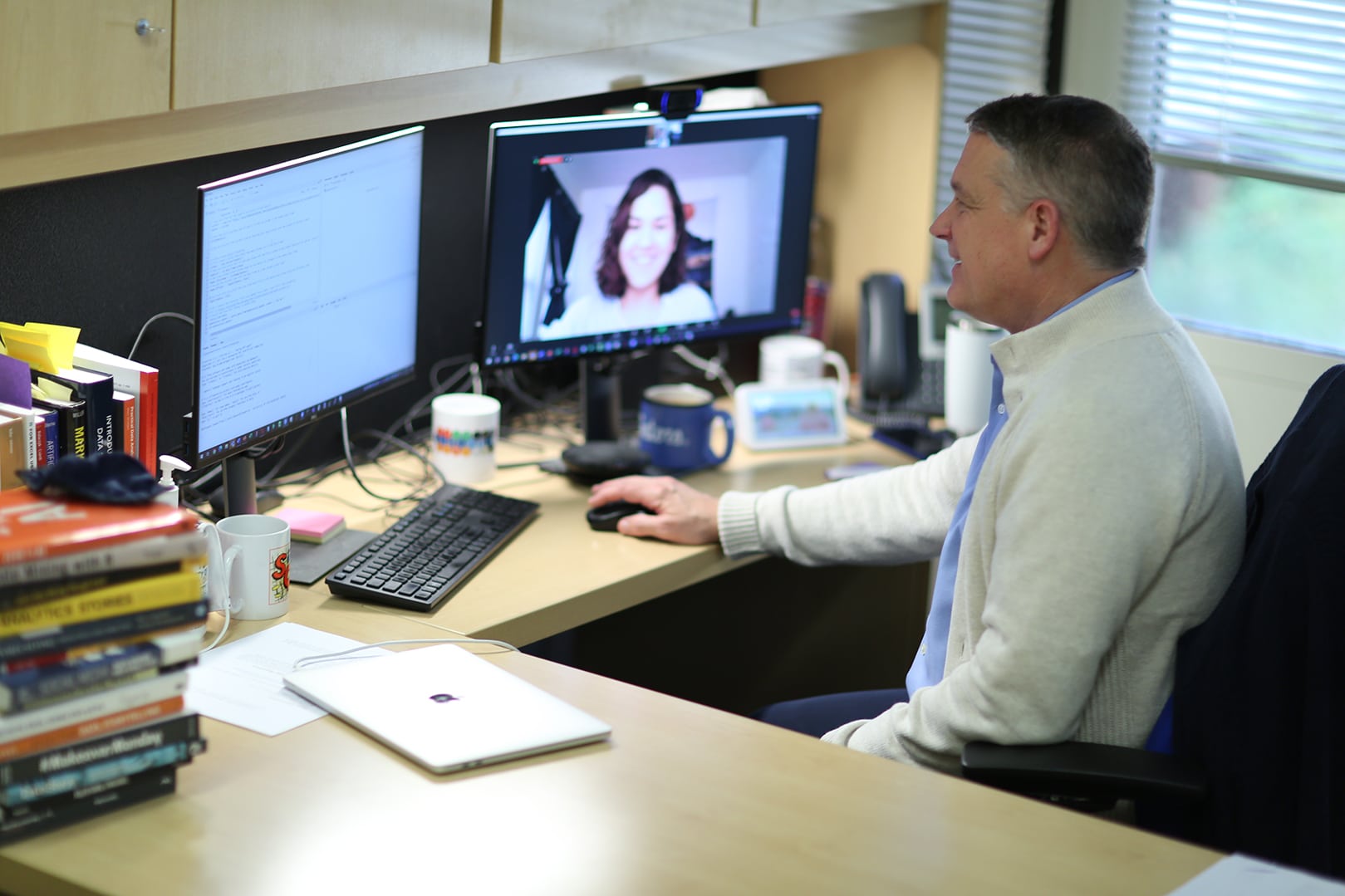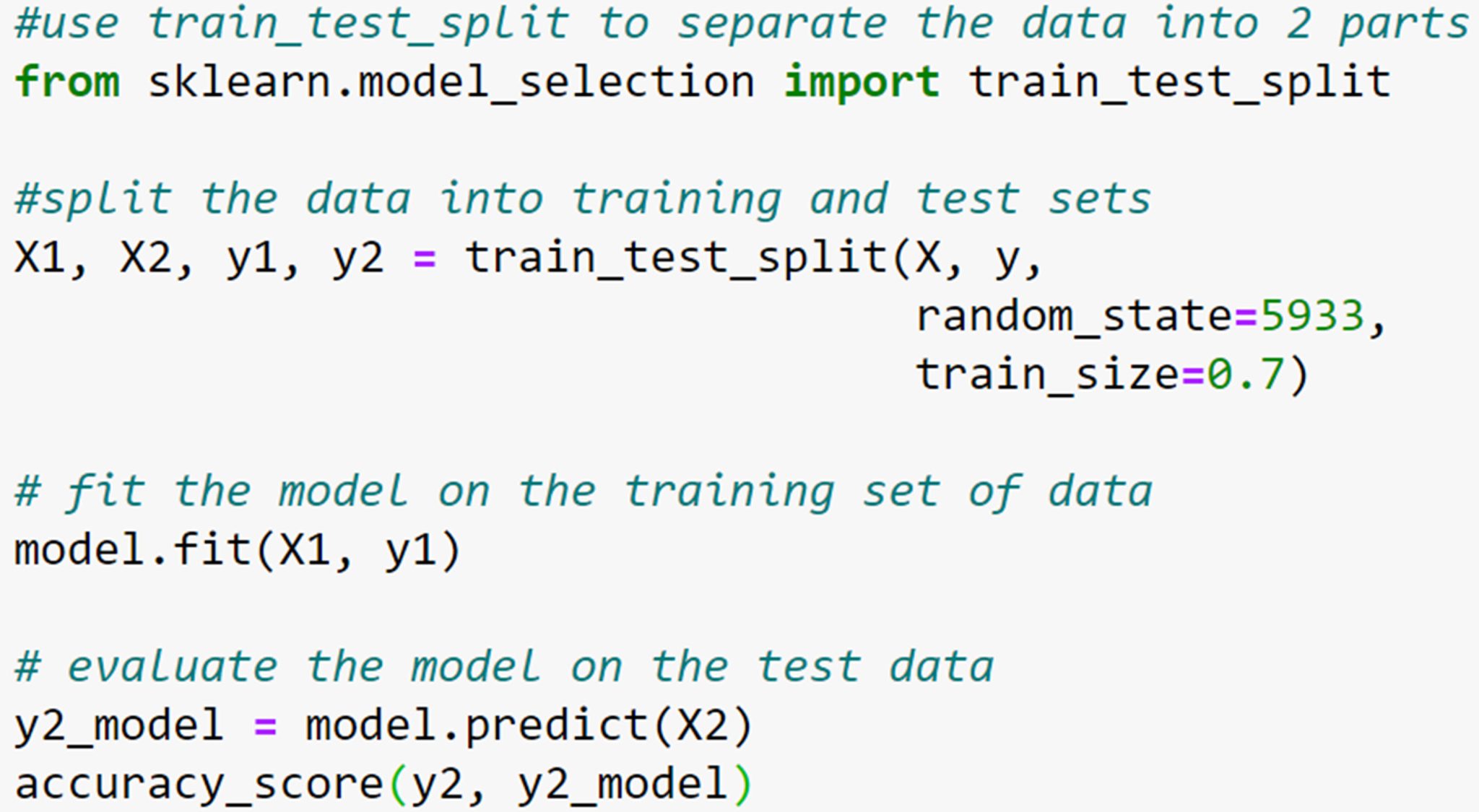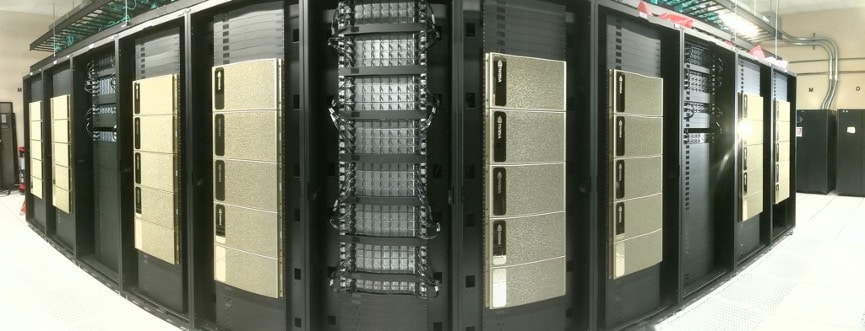5 ways you can learn about AI and analytics at Warrington
Businesses used to be driven by Excel spreadsheets, but today, the Warrington College of Business is preparing graduates for the future of business with a new level of analytics and modeling tools. From faculty with expertise in AI and analytics to courses and degree programs to the most advanced technical resources, Warrington has what you need to develop your foundation in AI and analytics. Read on to see the five ways you can learn about AI and analytics at the Warrington College of Business.
1. Faculty AI experts

Judy A. Warrington Professor in Business and Master of Science in Information Systems and Operations Management Director Janice Carrillo.
AI and analytics are not new at the Warrington College of Business. The College is home to more than 40 faculty members with a research or teaching interest directly related to analytics and AI, and that number is only growing. Their research and teaching focuses on the analysis of large volumes of corporate data using cutting-edge methods.
Here are just a few faculty members at Warrington who focus on AI and analytics in their teaching and research:
- Jim Hoover | Clinical Professor, Marketing Department
Dr. Hoover has an extensive background in analytics, AI, machine learning, forecasting and operations research from both his academic teaching experience at the University of Pennsylvania and Florida Southern College as well as his career experience in the U.S. Navy and in IT and management consulting at Accenture.
- Janice Carrillo | Judy A. Warrington Professor in Business, Information Systems and Operations Management Department
In addition to her role as Director of the Master of Science in Information Systems and Operations Management, Dr. Carrillo’s research interests include e-commerce, supply chain management, sustainability and technology management, which was fueled by her early career work as an electrical engineer.
- Haldun Aytug | Karl F. and Nancy J. Flammer Professor, Information Systems and Operations Management Department
Dr. Aytug has taught at Warrington for 20 years in courses like business programming and database systems. His research delves into genetic algorithms, machine learning, data mining, scheduling and decision making.
Check out more of Warrington’s AI and analytics experts.
2. Analytic environments
Students learn in leading-edge analytic environments intentionally designed for their development. Instead of sitting in a classroom and learning about cloud-based environments, Warrington students have accounts in the IBM and AWS Clouds to receive hands-on training in the same technology being used by leading companies around the world. Students also have access to UFIT’s multi-terabyte Data Lake and HiPerGator, the University of Florida’s supercomputer that includes the latest generation of processors and offers nodes for memory-intensive computation.
3. Degree programs

Jim Hoover going over coursework with a student.
For students looking to dive deeper into AI and analytics training, Warrington offers data science and business analytics tracks in the Master of Science in Information Systems and Operations Management (ISOM).
In the business analytics concentration, students learn how to become a crucial translator of business functional needs into analytics processes and analyses. This concentration focuses on combining business functional knowledge and related data with analytics skills to meet the growing needs of analytics teams supporting businesses.
In the data science concentration, students learn essential skills to design systems and processes to collect and analyze data. Acquire statistical and business intelligence tools necessary to extract and communicate crucial insights effectively. This concentration combines programming, information systems, business intelligence, and quantitative business courses to provide a technical foundation for students pursuing a career in data science.
4. Graduate and undergraduate courses
There are 18 graduate level courses offered by Warrington in areas related to AI and analytics. In addition, an experiential course offered in Summer 2020 involves projects sponsored by Accenture, UFIT and the Provost’s Office.

An example of Python code from Joel Davis’ undergraduate class.
Some of these classes include:
- Artificial Intelligence Methods
- Artificial Intelligence Methods
- Data Analysis and Skills
- Data Mining for Business Intelligence
- Intro to Business Intelligence
- Marketing Analytics I & II
- Programming for Business Analytics
- Statistical Analysis for Managerial Decisions
Warrington recently introduced an undergraduate core course – Foundations of Business Analytics and Artificial Intelligence. This course, taught in Python, will be taken by all business majors. It will also enable Warrington to develop new business domain-specific analytics courses, a BABA specialization and a minor focused on business analytics and artificial intelligence.
5. NVIDIA’S supercomputer

The HiPerGator with NVIDIA technology.
The University of Florida has a public-private partnership with NVIDIA that will catapult UF’s research strength to address some of the world’s most formidable challenges, create unprecedented access to AI training and tools for underrepresented communities, and build momentum for transforming the future of the workforce.
Thanks to a $70 million investment from UF alumnus Chris Malachowsky, NVIDIA and UF, the initiative will create an AI-centric data center that houses the world’s fastest AI supercomputer in higher education. Working closely with NVIDIA, UF will boost the capabilities of its existing supercomputer, HiPerGator, with the recently announced NVIDIA DGX SuperPOD™ architecture. This will give faculty and students within and beyond UF the tools to apply AI across a multitude of areas to improve lives, bolster industry, and create economic growth across the state.




